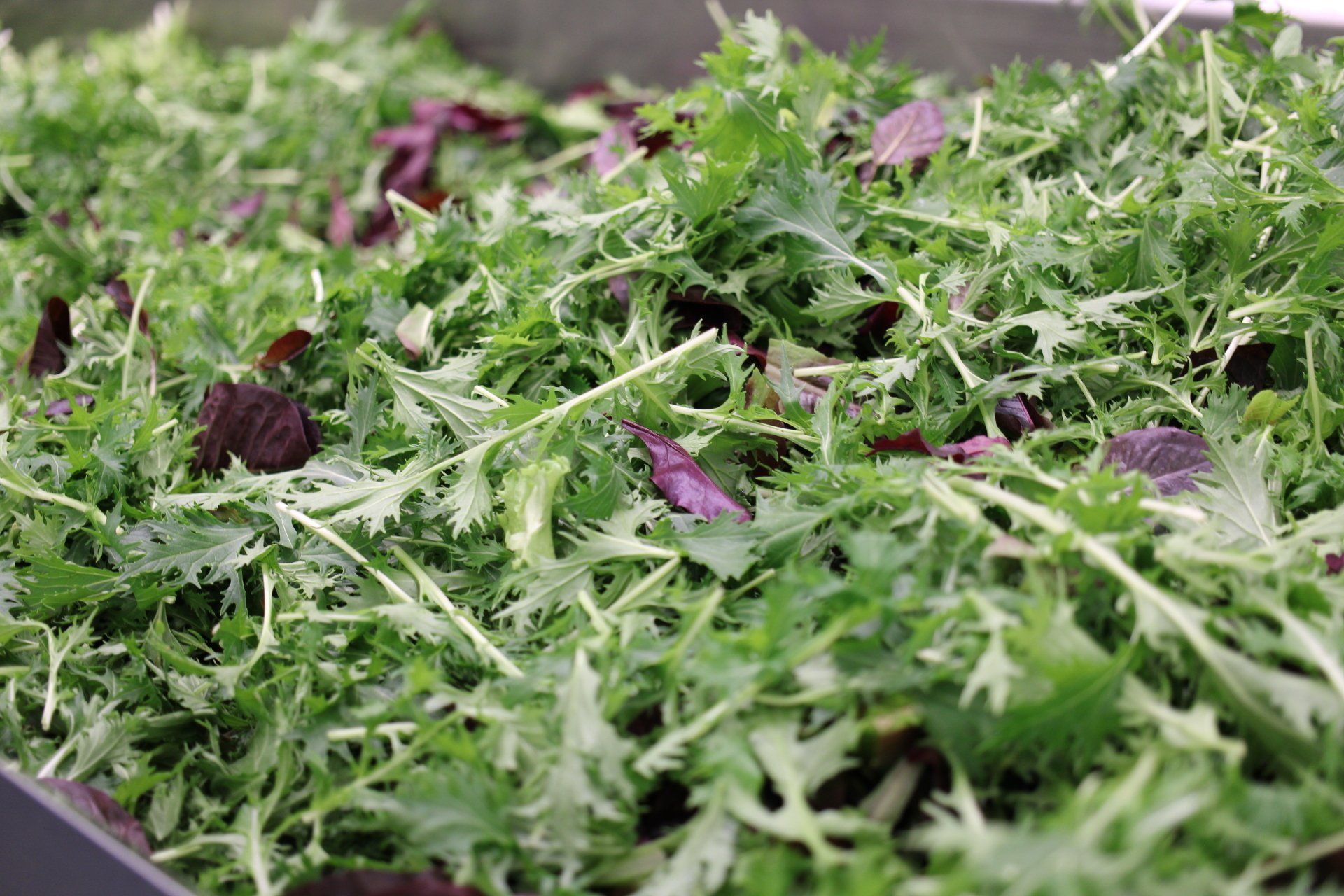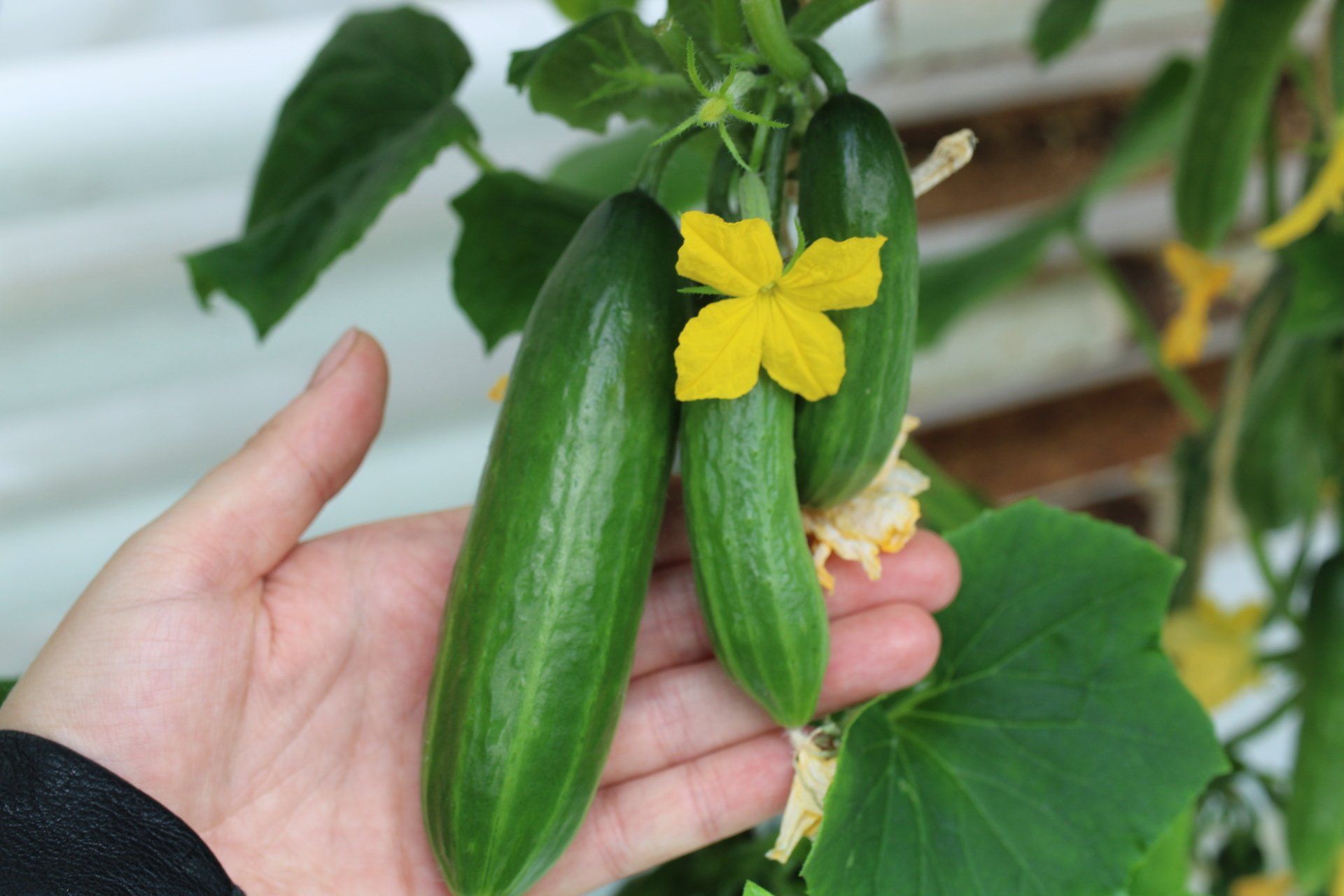At New Covent Garden Market in London, a group of three companies, S Thorogood & Sons, Rushton’s and Classic Fresh Foods, have plenty to celebrate during British Food Fortnight. Here, the three businesses explain the role British fresh fruit and vegetables plays in their offer and highlight key suppliers.

Thorogoods and Betts: Andrew Thorogood, MD, S Thorogood and Sons
Give us a bit of background on Thorogoods
S Thorogood & Sons, which has been supplying customers in London and the South East with top-quality British produce since 1922. We proudly say that everything we sell is “grown by farmers, sold by farmers”.
First and foremost, we are a family business. We’ve been growing and selling just shy of 100 years, so we’ve had a lot of time to hone our skills at producing the best, seasonal produce. In fact, we’re one of the only wholesalers left who still keep their fingers green! Our business is based on a simple idea: to grow and sell the best in British produce. And it’s all made possible by the close working relationships we have with our brilliant suppliers. Their skill for growing produce with care and attention to detail is second to none. Since 1922 we have been growing and selling the highest-quality British produce with the utmost care and expertise.
You obviously sell imported fresh produce too, but where does home-grown product sit in your offer?
As farmers at heart, we relish the opportunity to promote British produce. Buying locally is not only the most sustainable way to buy, it’s also the tastiest. Produce that hasn’t had to travel far is fresher and can be picked at the optimal ripeness. British Food Fortnight is the biggest national celebration of British food on the nation’s calendar and we’re proud to say that we work directly with a huge number of British farmers; many of which deliver produce to us within 24 hours of picking, so we really can offer our customers the freshest produce available, right here in London.
Our farms and affiliated growers produce more than 100 vegetable varietals throughout the year, with a commitment to seasonal produce, keeping your tastebuds inspired. Our British produce sells very well.
We have a tremendous enthusiasm for using British grown produce and by passing this enthusiasm on to our customers we create a strong demand for our vegetable and salad products. We believe that the farmers of the UK produce some fantastic fresh produce and we love seeing it used in kitchens, both professional and domestic, across London and the rest of the country.
Let’s throw the spotlight onto one of your British suppliers
We pride ourselves on our ever-changing selection of British seasonal produce but if we look at a product that has sold particularly well recently it’s got to be the salads from Laurence J Betts Ltd. They are one of our longest-standing suppliers; we’ve been working together since the 1980s when they came to us after buying our cabbages.
LJ Betts is a historic family business based near West Malling, Kent, producing a selection of whole head, baby leaf and multi-leaf salads and cereals. Recently we’ve also been exploring a few other lines with them including pak choi and herbs. With the farm being located just over 30 miles from New Covent Garden Market it’s one of our closest farms and the salads we receive are picked the very same day. Betts understands that their business is dependent on our environment and aim to sustain it to guarantee a prosperous future of food production for the generations ahead. They are committed to their responsibilities of maintaining the environment and farming in a sustainable manner and as such:
- The farm encourages wild flowers and has an on-going policy of maintaining and sowing wild flower meadows to encourage wildlife, such as bees. Rare species of flowers have been spotted on site, including the Bee Orchid and the Grass Vetching.
- Solar panels have been invested in to provide a replacement of electricity used by the farm and its operations.
- Money has been spent on reservoirs for increased capacity of water on our different farming sites.
- On-going investment into energy efficiency is taking place. New technology in cold storage and in machinery is constantly being invested in to help reduce energy usage.
- There is constant maintenance of our woodland areas in a sustainable manner.
- The farm has a very sustainable approach to farming. All of our farming operations take place with great consideration to the impact on the environment.
- The farm participates in a five-year environmental scheme which involves leaving uncropped areas of the farm to encourage wildlife.
- There have been on-going projects around the farm to encourage bird presence. This includes nesting boxes for owls and designated strips for skylark nesting. Through surveys conducted by the RSPB there have been some fantastic results seen around the farm, including an increasing number of birds of prey.
- The yard surrounds Offham church which is in an historic conservation area and is classed by Kent county council as a site of historic importance.
- A Farm Biodiversity Plan has been written up for the farm, which assesses the current biodiversity and lays out future sustainability programmes.
Betts believes that the local community should enjoy the surrounding countryside and is committed to promoting local produce and farming within the community, through farm visits and education. They encourage and invite the community to learn about the source of their food and therefore provide regular visits and tours to educate and inform people of our food production system. Great care is taken to maintain the heritage of the landscape, integrating farming with environmental stability for everybody to enjoy.
Rushton’s and Caffarelli Cucumbers: William Thorogood
Rushton’s is well known for its strong Italian offering, but it also follows the British seasons, doesn’t it?
Buying British produce means you are supporting British farmers and a lot of the produce we supply is with us within 24-48 hours of being picked. It’s that fresh.
We’re currently working some superb British cucumbers from the Caffarelli family, who have been growing “English cucumbers with an Italian flavour” at Floral Farm in Cambridgeshire, for four generations.
They sound interesting, what types of cues are they growing?
Although traditional naked cues are the predominant variety, Mark Caffarelli loves to experiment with unique varieties including micro snack cucumbers, large cucamelons and he’s currently working on a very exciting project – Asian wok cucumbers. The Caffarelli’s will be the first UK growers of this cooking variety, which has just become available.
Sustainability is key for many of your customers – how is Rushton’s addressing that challenge?
Buying local is great but ensuring our growers are working in a sustainable manner takes it one step further. The team at Floral Farm likes to have oversight of the entire process and work closely with the seed manufacturers to share expertise. The cucumbers are planted, maintained and picked by hand in vast glasshouses while a state-of-the-art UK based Tontec computer system is used to regulate the temperature, irrigation and ventilation.
Responsible farming is at the heart of Floral Farm, the team recently invested £350,000 in 2 biomass systems which will reduce their carbon footprint and minimise their environmental impact. The farm is also pesticide-free choosing to use natural Bioline packets instead and all fuel for the farm is sourced within a 50mile radius of the farm.
Classic Fresh Foods and Annabel’s Deliciously British: Rob Burton, MD of Classic Fresh Foods
What is the role of Classic within your group?
Classic Fresh Foods was formed in 1997 by the Thorogood family and specialises in supplying fresh produce to demanding and discerning chefs in hotels, restaurants and gastropubs in the central London area. In addition to fruit and vegetables, we also stock a comprehensive range of basic dairy, dry and frozen goods.
Our history has given us an excellent position in the market having strong, well-established relationships with some wonderful like-minded British growers and producers; meaning we can bring you the very best in-season directly from the growers.
What does British produce mean to you and how do you work with Annabel’s Deliciously British?
To me British produce means summer. It’s when we can supply to the biggest and best range of what Britain’s producers have to offer to demanding and discerning chefs who want truly seasonal products.
Annabel’s Deliciously British strawberries are a prime example. Annabel the founder of Annabel’s Deliciously British was at university when she decided to grow premium strawberries with her father on their family farm in the heart of Yorkshire. Establishing a reputation for excellence, her strawberry enterprise grew rapidly to supply top restaurants and retailers with the finest UK strawberries.
Over a decade later, she founded Annabel’s Deliciously British – a food brand that produces exquisite products for people who care about taste and provenance. Inspired by the astonishing diversity of the land around her.
They grow from May to October on their family farm in West Yorkshire’s lush but rugged countryside, an operation they have been fine-tuning for over 16 years. Varieties are specified based on the time of year, weather and flavour – only the best will do – and are planted over five months to ensure continuity of supply.
In addition to sourcing produce locally, working with sustainable suppliers is paramount. The team at Annabel’s makes every effort to be carbon neutral, they send any waste berries to their packaging supplier’s anaerobic digester – so their biodegradable strawberry punnets (500g) and cardboard trays (1kg) are produced using strawberry power.
How can consumers find out what is in season and when?
British produce is extremely important to our customers and forms a large part of our offering. We’ve made a seasonal menu planner using the Union Jack to highlight our British produce. Our menu planner can be viewed and downloaded here – use it to find out what you can buy right now to celebrate British Food Fortnight!
Share:
You may also be interested in...
















